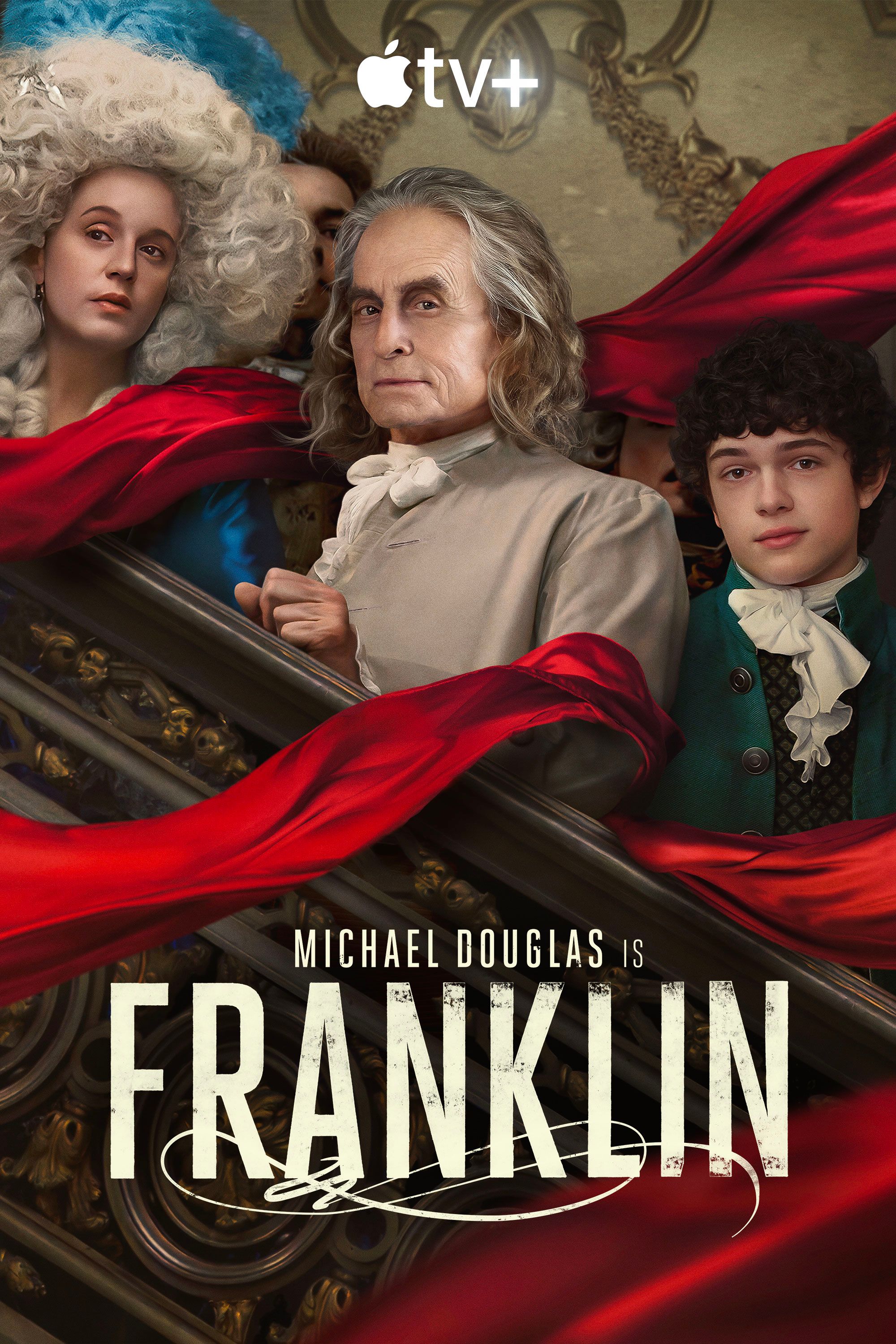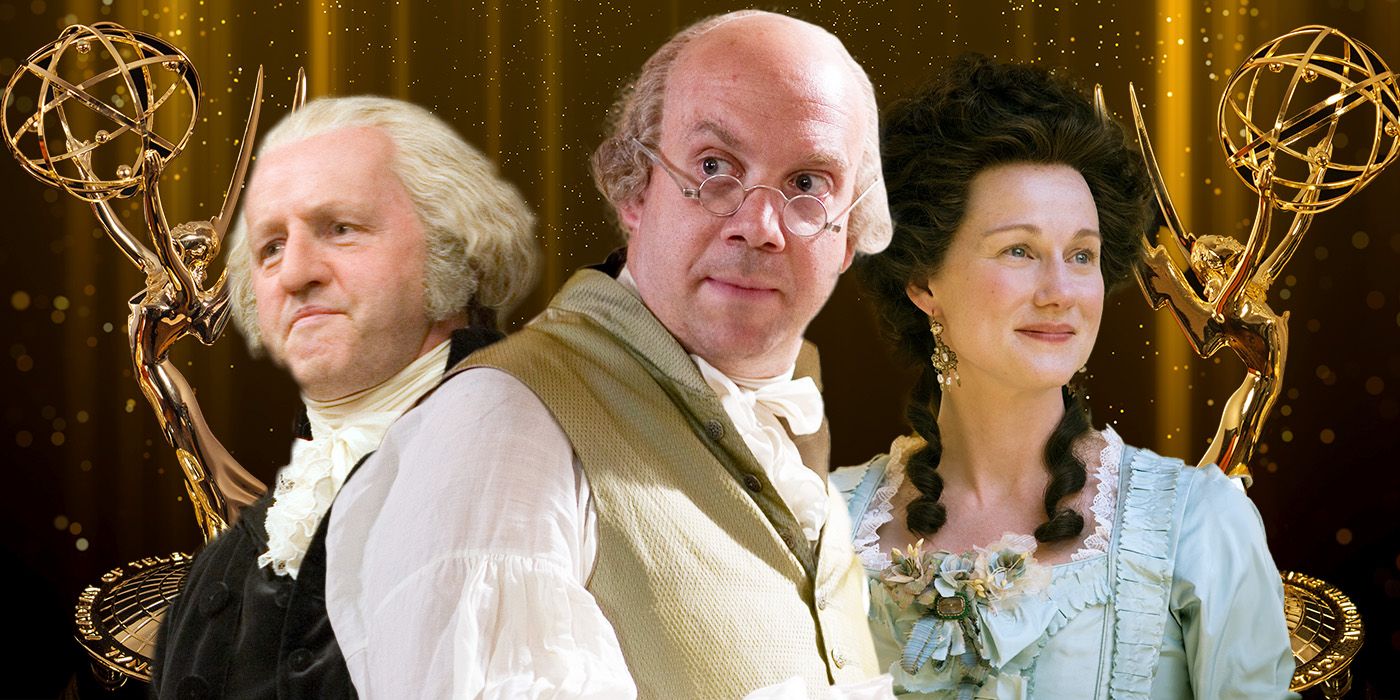The True Story Behind Apple TV+’s ‘Franklin’ Isn’t What You Learned in School
The Big Picture
- Benjamin Franklin took a daring gamble in France, facing execution if captured, to secure crucial support for the American Revolution.
- Franklin leveraged his celebrity status, diplomatic skills, and patience to effectively negotiate with French elites and secure military aid.
- Despite his pivotal contribution to the Revolution, Franklin’s achievements in France often go unnoticed, highlighting the unconventional nature of his mission.
Although Benjamin Franklin has always been viewed as one of the great Founding Fathers, Apple TV+’s Franklin delves into a lesser-known part of his history. Based upon the novel A Great Improvisation: Franklin, France, and America by Stacy Schiff, the new miniseries depicts Franklin during the eight years he spent in France gaining foreign support for the American Revolution.
Starring Michael Douglas in the titular role and directed by veteran television alumni Tim Van Patten, Franklin portrays the struggles and triumphs of a flawed but brave man in his quest to appeal to what was once an enemy for their support. Already a celebrity in his day, Franklin’s voyage was still dangerous for a man already in his seventies and who risked execution if captured by the British Navy. Although dismissed by some of his more experienced political contemporaries as a womanizer, Franklin was instead a social animal who knew how and when to engage with people and bid his time before officially making his case to the House of Bourbon. Thanks to these underhanded political and social skills, he mingled surprisingly well in high French society, making common cause with the top politicians of his day and securing crucial military support for the Revolution.

Franklin (2024)
Explores the story of one of the greatest gambles of Franklin’s career. At age 70, Franklin outmaneuvered British spies and French informers while engineering the Franco-American alliance of 1778.
- Release Date
- April 12, 2024
- Seasons
- 1
Why Was Benjamin Franklin Selected For His Mission to France?
At first glance, Benjamin Franklin might seem like an odd choice for the first American diplomat, since other major ambassadors of the era, such as future Chief Justice John Jay during his mission to Spain, were all experienced politicians. By contrast, aside from briefly serving in the Pennsylvania legislature and being a delegate to the Continental Congress that same year, Franklin had very little diplomatic experience.
Unlike them, however, Franklin had public credibility and was perhaps the only American known by name among many citizens of France. Before the outbreak of the Revolutionary War, the ambassador was already famous across the thirteen colonies for his many contributions to science and the arts, which earned him respect worldwide. More than a skilled colonial politician, the founders needed a well-known figure to make their case if they wanted to have a hope of later securing French support. Moreover, although he had never held elected office at the time, Franklin had already displayed some diplomatic skills with his failed but daring attempt to unite the colonies into a collective wartime effort during the Albany Conference in the French and Indian War nearly twenty years earlier.
Given the crucial nature of French aid, Franklin was dispatched very rapidly by colonial standards, departing for Europe in October 1776, only a few months after signing the Declaration of Independence in his own native city of Philadelphia. Although the mission was seen among the patriots as a diplomatic one, it was also unofficial, as France could not risk being seen negotiating with the rebels before they were confident of a victory.
Franklin was not alone on his journey, instead being accompanied by his grandson William Temple (Noah Jupe) as his personal secretary, giving him a front-row seat to the theatrical nature of European politics. When he was appointed, Franklin had recently turned seventy in an era where sixty was already seen as being elderly, and the journey took months for those involved. Aside from the usual threats of bad weather, piracy, and disease, Franklin himself had documented his own treason by signing the Declaration. Had he been captured by the British, who possessed the strongest navy in the world at the time, he would almost certainly have been executed, and it would be no exaggeration to say that the American Revolution would have died with him.
In France, Benjamin Franklin Played the Long Game
While he was an open celebrity in France, the first year of his trip placed Franklin in a very politically precarious position. Although volunteer forces like those of Marquis de Lafayette (Theodore Pellerin) had proven to be beneficial for morale, the news coming from the colonies of disastrous military defeats against the British made things appear grim for the cause, and he had to wait to officially engage with the members of the French aristocracy until a major colonial victory made any resulting war with Great Britain appear winnable. To prevent alienation from the French, he never publicly revealed the reasons for his visit and stayed in the village of Possy outside Paris, as a neighbor to Anne Louise Brillion de Jouy (Ludivine Sagnier) and her husband. Despite his private fears, Franklin falsely boasted of American success during his stay with French aristocrats, preventing rumors about the truly pitiful state of the patriot army from reaching the French court. Only in December 1777, after learning of the stunning victory of Saratoga two months earlier, did the French embrace the American cause with open arms, leaving Franklin to be officially named as minister to the country.
For the first time, Franklin could now be officially recognized by the government of France, and he took advantage of the opportunity, moving from just outside Paris to the very heart of the Bourbon dynasty in Versailles. There, he kept up the pressure and negotiated with Foreign Minister and Count of Vergennes Charles Gravier (Thibault de Montalembert) to take the final steps towards an alliance. Over two months, a formal treaty was drafted that ensured French military support for the Americans. Finally, a royal reception with King Louis XVI was held, and the young monarch agreed to provide the rebels with five thousand troops. To prove just how crucial these reinforcements were, nearly all of them participated in the climactic siege of Yorktown which proved a decisive victory for the Americans three years later.

Paul Giamatti Leads a Star-Studded HBO Miniseries That Swept the Emmys
The story of an unsung American hero.
Benjamin Franklin Melded Perfectly With French High Society
One reason why Franklin became so successful at negotiating with French politicians was that his personality was exactly the kind their culture admired. Within the elite ranks of the Ancien Régime, his scientific talents were seen as fascinating and his natural charisma endeared him to the aristocracy. Known as a keen observer, Franklin adapted to the courteous culture of high French society by taking note of their customs and even learning to speak some of the language. Given the prolonged amount of time between his arrival in Europe and the critical victory at Saratoga, the selection of such a patient individual was likely just as important to securing French support as the victories on the battlefield.
Not everyone was delighted to recognize Franklin’s political achievements. Most notably, Boston defense lawyer and future president John Adams (Eddie Marsan) replaced another diplomat in France and bore witness to his negotiating style, which he viewed as abhorrent. Not only did Adams tend to despise Franklin for his behavior, but he was deeply envious of Franklin’s popularity with both the elites and the people. In fact, his status was such that Franklin stayed in France for the rest of the war and even after it had finally ended in 1783, only returning when officially recalled by Congress in favor of another Founding Father and future president Thomas Jefferson. When he finally returned after nearly a decade overseas, Franklin was now eighty and the country had moved on, becoming something he often barely seemed to recognize. While he briefly served as Governor of Pennsylvania and was later present at the Constitutional Convention, he was never rewarded for his crucial diplomacy in France as the first American ambassador before his death in 1790 at the age of 84.
Overall, the political support Franklin provided for the American Revolution was extremely vital, and it can often feel remarkable that he pulled off such an important task. The journey was risky and his selection unconventional, but there was perhaps no man better fit for the job. Ironically, that very patriotic job involved historical exaggerations, elitist seduction, and even the shameless exploitation of celebrity status, which perfectly depicts the other side of his personality. Ironically, for a man whose life has long been studied and covered to an exhausting degree, the importance of his efforts has since gone almost unnoticed, and it remains high time for those services to be highlighted with the attention they deserve.
Franklin premieres on Apple TV+ on Friday, April 12 in the U.S.
